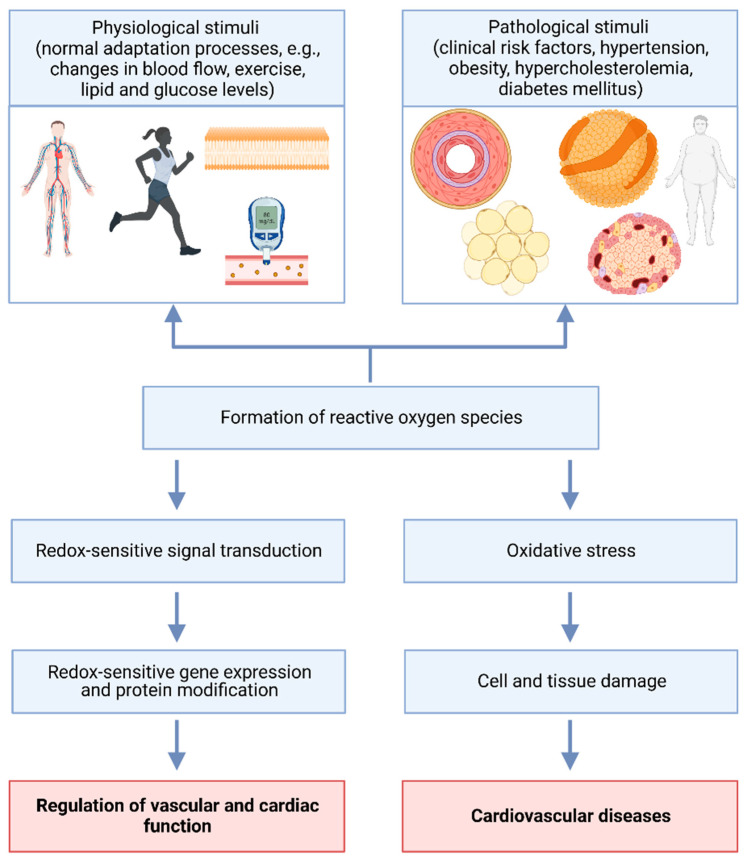Figure 1.
Impact of physiological and pathophysiological stimuli on the regulation of vascular and cardiac function and cardiovascular diseases. Physiological stimuli like exercise can induce redox-sensitive signal transduction and the regulation of vascular and cardiac function. Redox-sensitive signal transduction, gene and protein expression and the regulation of vascular and cardiac function are also present in patients with cardiovascular diseases, despite being altered. Clinical risk factors and the metabolic syndrome can increase levels of vasoactive substances like angiotensin II, oxidative stress, cell and tissue damage, as well as in long-term cardiovascular diseases. Created with BioRender.com.

